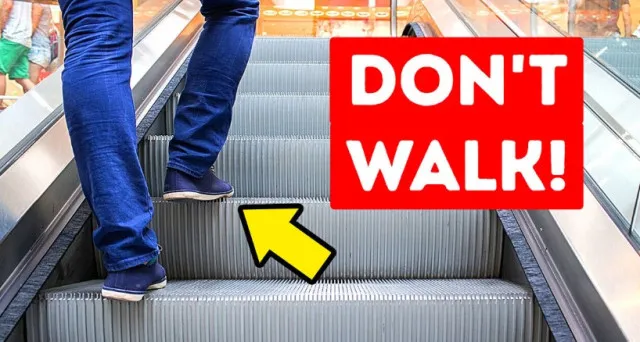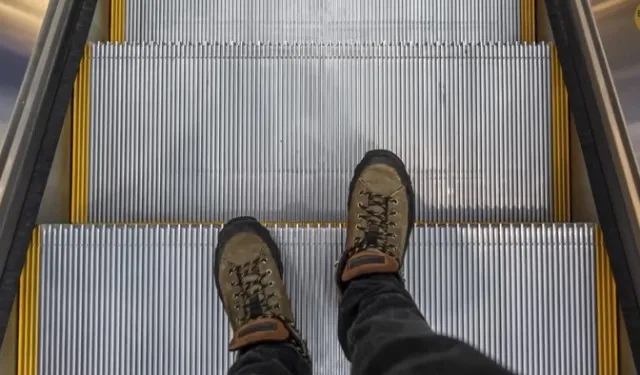Using a stopped escalator as a stairway might seem harmless, but it carries hidden risks that can compromise your safety.
When you visit a mall or a public place, you may find yourself needing to go to another level.
If the escalator is not moving, it might be tempting to walk up it anyway. However, this choice can be dangerous.
Why you should avoid using a stopped escalator as a stairway?
The risks of using a stopped escalator
Escalators are designed to move people smoothly between levels.
When they stop, they are no longer safe to use as stairs.

One major risk is that if the escalator has stopped due to a mechanical issue, it could start moving again unexpectedly.
If you are on it when this happens, you could easily fall and get injured.
Additionally, escalators have steps that are often higher than regular stairs.
This difference can lead to tripping, especially if the escalator stops in a way that makes the steps uneven.
Walking down a stopped escalator can be particularly hazardous, as the risk of falling increases.

Stopped escalators can exceed their weight limit.
Escalators are engineered to carry a specific weight while in motion.
When they are stopped, the weight limit can be exceeded if too many people decide to use them as stairs.
This added weight can cause further mechanical issues or even lead to the escalator collapsing under the strain.
Using escalators inappropriately can put you and others at risk.
It is essential to respect the design and intended use of these machines.
The “broken escalator” phenomenon
When you walk on a stopped escalator, your brain may become confused.
Your body expects the escalator to be moving, and this can throw off your balance.

This phenomenon occurs because your brain has trained itself to adjust to the motion of escalators.
When they are stopped, you may feel unstable and awkward as you try to navigate the steps.
Research has shown that people tend to behave differently on moving escalators compared to stopped ones.
This can lead to accidents if you are not careful.
Safety features of escalators
Escalators often come equipped with safety features designed to protect users.
For example, many escalators have brushes called skirt deflectors along the edges.
These brushes help keep your shoes, feet, and clothing away from the gap between the escalator steps and the side.

If something gets stuck in this gap, it can cause serious problems.
Moreover, some escalators have yellow borders to indicate danger.
These warnings are reminders to stay clear of the edges.
In places like New Delhi, special guards are added to prevent clothing from getting caught in the machinery.
These safety features highlight the importance of using escalators as they are intended.
Historical context of escalators
The concept of escalators dates back much further than many people realize.
Early versions were used during the construction of the Great Pyramid in Egypt, where large stones were moved using a system of rolling wheels.

The modern escalator was invented in the late 19th century by Jesse Reno, who created a moving staircase for amusement purposes.
Since then, escalators have transformed public spaces, allowing for efficient movement in busy areas.
However, it is crucial to use them properly to ensure safety.
Alternatives to stopped escalator
If you encounter a stopped escalator, the best option is to look for another way to reach your destination.
Most malls and public places have stairs or elevators available.
Taking these alternatives is safer and can prevent potential accidents.